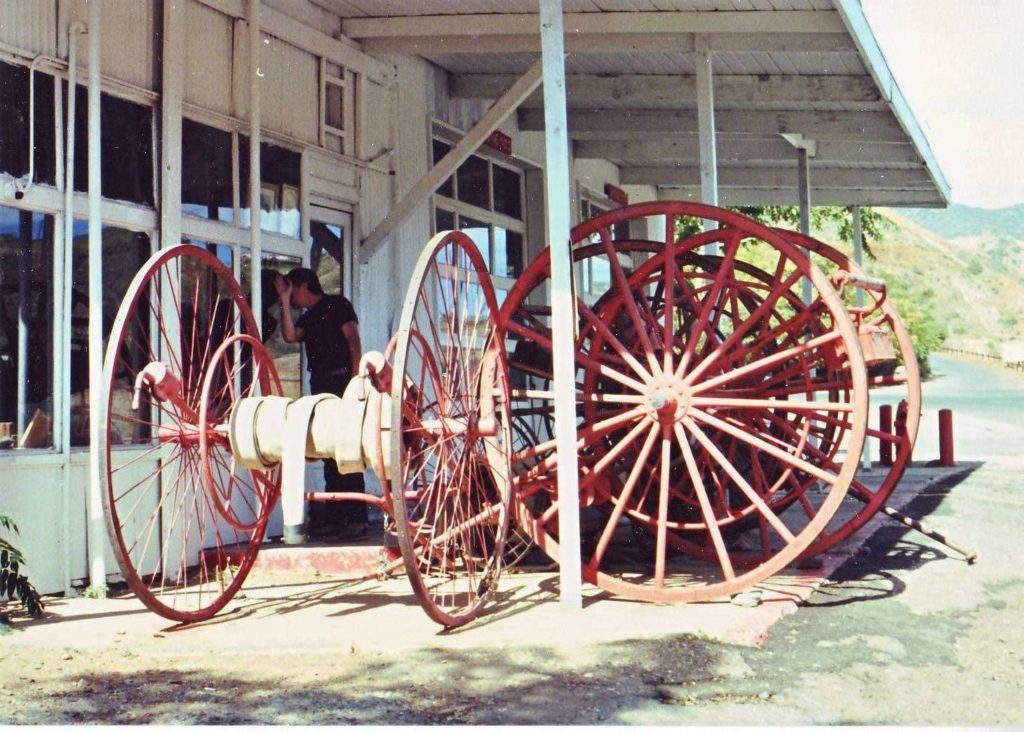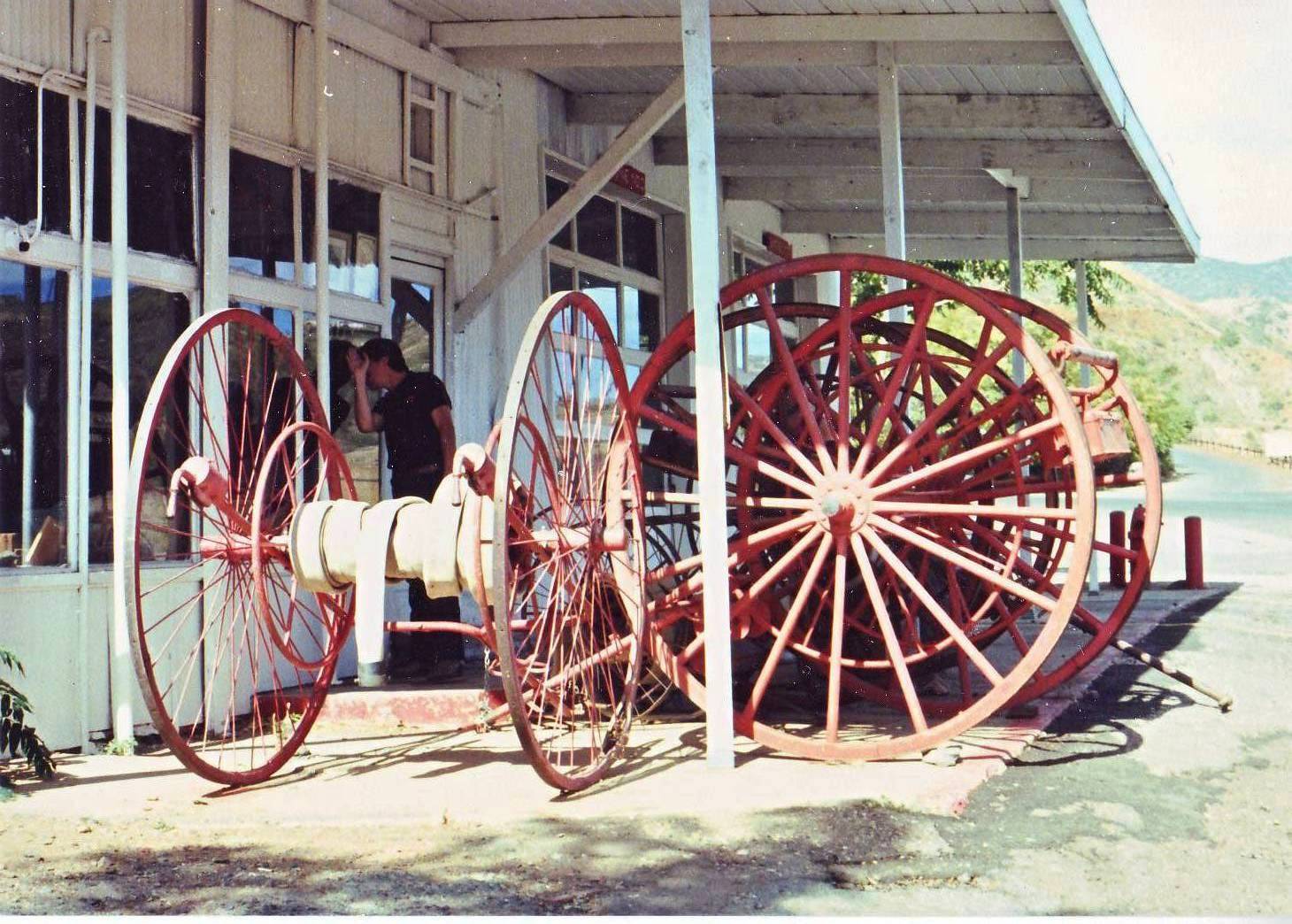 |
| Wagon Wheels at Jerome Arizona 1989 |
What is important to us? Again, what is important to you? You might say, “Why do you ask?” and I would reply, “Because, if we know this kind of info about a person, we basically know them.
“As a man thinks in his heart, so is he,” so says the Bible. “Heart” thinking contrasts with “mind” thinking as “heart” displays a habit of thinking. Heart involves thoughts which have been focused upon often, believed on; enough to create a pattern in the heart/processor. Like a depository, they become our fixed and steady stuff. They got this way because they have importance to us, or otherwise they would not have stuck.
So, again the question, what is important to you? Sooner or later all could find this out to a degree, if they hang out with you long enough. See, this kind of info records itself, with or without a person’s permission, and stores itself on your computer. Computer? Yes, we all get to program our own computer.” Well, I never knew about this, “might be the response. Doesn’t matter, your computer has been recording everything most important to you, for your whole life, and that is who you are. Shocking!
How does my computer know what is important to me? Easy, it ledgers in what you think routinely, say habitually, and do customarily. “Well, I don’t want people to know some of that stuff” you might say. No problem, it’s a secret between you and your computer, for now; although people surely know that you love “Seattle’s Best” coffee. How? They watch you drink it every morning. Well, you might reply,” I really don’t like it that much, I just drink it because it is all I have.” No problem, the computer doesn’t care that much about motives, or morals, or why you drink it daily—it only cares that you do drink it every day.
My computer interprets my coffee habit as important to me, and responds with certain other mechanisms to automatically kick in as coffee-habit-supporters, like it or not. First of these; my computer’s alarm systems will alert me when I miss my vital morning ritual —bells of discomfort, and maybe a headache. Secondly, my computer’s cheerleaders will applaud me when I don’t miss —I feel so much better.
See, my software configures itself to facilitate the things it has interpreted as uppermost to me, plain and simple. After all, I did choose these things. You might say,” hey, when my pet canary died, I started drinking coffee.” “It’s just a bad habit.” Probably not esteemed bad enough, however, for you to battle through the alarm system, and ignore the feel-good cheerleaders, to stop the habit. It is found to be a priority, after all.
So far I have been gracious, because a coffee habit, perhaps, measures neither a good thing nor bad. However, I meet with a group of substance abusers, and their situation is more serious. These folks often blame others for their sad state, but frankly, they all esteem their need to continue in their habit, as essential. I’m not being critical or sarcastic, but most of these coddled their dependency to a point where now a chemical thing has reinforced the “important inclination.” These precious folks have developed major alarmers and strong, powerful cheerleaders to fortify the addiction.
So, the problem with having one pattern of importance—it will force our computer into other inclinations of importance. This other stuff creates and develops fresh thoughts in the image of our big alarmers or cheerleaders. See, the importance of these two has grown in association with their friend and guru —the original habit. Blessing by association? —cursing also by association comes. The alarmers generate those things called “excuses” and the cheerleaders build more sophisticated things called “rationale.” When many variations of these evolve, The Bible calls the whole thing a “stronghold.”
How do people get out of it? The Stronger than thee (Christ crucified) must first bind the strong man —then remove the armor wherein is trusted. What armor? The armor of excuse and rationale, protectors of false-peace both, must be disarmed. What is the practical sense here?
The strong-man originated when the over-importance was placed on the certain thing, causing exponential growth. This big heavy-weight must be reduced. See, by habitual activity in the thing, our computer registered it for us as “extreme in importance” and this gave it bigger and further authority over us. This “negative” authority grew, as we realized further, the residual effects, (body break down, financial turmoil etc.) It all snowballed into a major preoccupation, with many tributaries, eventually holding us in bondage.
So how does it go away? We first must realize that Christ took our sin-principle with sin-actions on Himself, the punishment for the sin and act also, and this eliminated the judicial weight of it for you and me. Folks, Jesus knocked the big ugly foreboding sin principle to hell and back at that cross, and never forget it. He kicked its proverbial butt from here to eternity. It’s judicial consequence has been waylaid, for the person embracing Christ’s substitutionary intervention, when He took the death and hell sentence upon Himself. Frankly, my sin has been paid for, forgiven, and drastically shrinks from my big important continual focus.
What about if I don’t stop the habit? Still paid for, I may reap the hand of chastisement from God, as any member of His family would. Won’t this bring me back into my sin consciousness more? Maybe, but possibly will re-direct my focus to the more immediate issue—my own self-imposed misery as a result of balking at and refusing God’s redemptive provision. Chastisement purposes to bring me back into the enjoyment of God’s graces, all stemming from His cross.
So, what am I saying? When redemption becomes more important to me than my sin, I am starting to experience deliverance. The all-encompassing work of God’s wise plan releases me from the power of anything else resisting. When I discern and focus upon this Great salvation, the authority of my sin wanes and disappears.
Some say it is too hard, others say it is too easy. It is neither, but only a work of God. Honestly, it is God who said in Micah 7:18 “I will subdue your iniquity.” What can I do? Cooperate with God on it, and let Him have His way of deliverance. Let Him love you, and humbly receive it all. The Psalmist said “what shall we render to the Lord for all of His benefits? I will take the cup of the Lord” Take the cup, my friend. Drink deeply and don’t look back. Amen

Be First to Comment